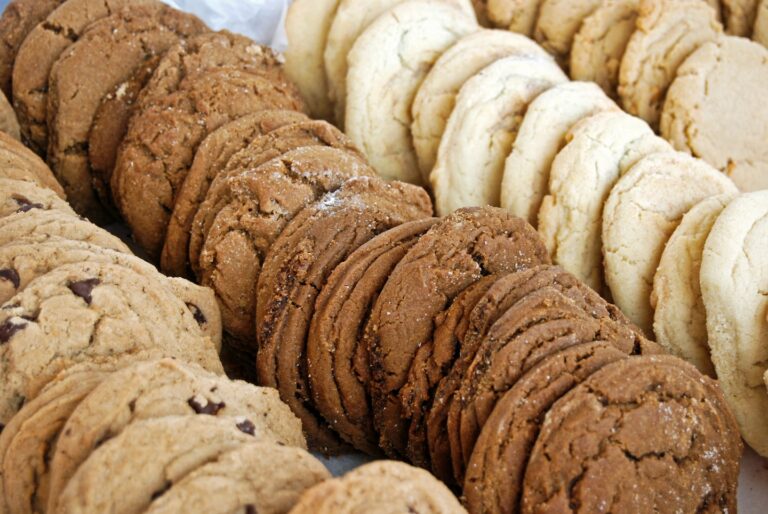The researchers noted that xylitol is not commonly used in keto or sugar-free foods in the United States, but is popular in other countries.
“We were trying to discover another pathway that contributes to heart disease that occurs naturally in the body: the next cholesterol,” said Hazen, who also serves as chair of cardiovascular and metabolic sciences at the Cleveland Clinic’s Lerner Research Institute. “And our belief is that sugar alcohols like erythritol and xylitol are associated with causing heart disease, or at least with the occurrence of future heart attacks.”
The same research team found a similar link between erythritol and cardiovascular disease risk last year.
Use of sugar substitutes is on the rise
The survey results are as follows: Use of sugar alcohols such as xylitol is on the rise, and the popularity of ketogenic and low-carb diets has fueled growth in alternative sweeteners touted as “natural.” According to research firm Custom Market Insights, about $1.19 billion in xylitol products will be sold in 2021, and that market is expected to grow to about $1.48 billion by 2030.
“We’ve had an extraordinary situation in the last 10 to 20 years where humans have been exposed to levels of xylitol that we’ve never experienced before in our evolutionary history,” Hazen said.
The findings call into question the common perception that sugar alcohols such as xylitol and erythritol are healthy, natural sugar substitutes. Although sugar alcohols are considered natural because they are produced in the body as part of energy metabolism, cells produce much smaller amounts of them. These sugar alcohols are produced industrially using bacteria and yeasts that go through a brewing or fermentation process to produce chemicals that trick the taste buds, Hazen said.
“Despite being a natural compound, it’s being used in a very unnatural way and at levels far higher than would appear in the body under normal circumstances,” Hazen said.
The researchers also found that elevated xylitol levels may be more damaging to the heart than cholesterol: A diet high in cholesterol can raise blood cholesterol levels by 10 to 30 percent, Hazen said.
Researchers found that eating products high in xylitol increased blood levels of the chemical by 1,000 times, or 100,000 percent, for four to six hours.
In other words, among the thousands of patients Hazen sees in his preventive cardiology clinic, those in the top 25 percent for cholesterol have a 30 percent higher risk of developing cardiovascular disease than those in the bottom 25 percent. But those in the top 25 percent for xylitol blood levels have a 200 percent higher risk of developing cardiovascular disease than those in the bottom 25 percent.
“This study is part of a growing body of literature on the physiological problems that artificial sweeteners can cause,” Marion Nestle, professor emeritus of nutrition at New York University, said in an email. “Researchers are finding more and more problems, now with xylitol.”
She thinks the study needs to be repeated, but suggests that xylitol may not be harmless. The benefits of artificial sweeteners in general are uncertain, she writes.
“It’s starting to seem more and more risky,” she wrote. “I’d like to avoid it, but I don’t like the taste anyway.”
Rob Van Dam, a professor of exercise and nutritional sciences at George Washington University, said the paper’s findings are compelling and add new insights to existing research on the risks of artificial sweeteners, but that because the study used blood from fasting people, which likely contained xylitol produced metabolically in the body, the scientists may not have been able to properly test the link between ingested xylitol and heart risk.
“So the question is, do elevated xylitol levels really reflect a bad dietary intake of xylitol,” Van Dam asked, “or is it just that there’s something wrong with people’s metabolism that’s leading to elevated xylitol levels?”
The researchers were aware of this problem and conducted a follow-up experiment in which they gave 10 subjects xylitol and water to see what happened to their platelets, and observed that the platelets appeared to clump together more.
“I don’t think that in itself is a big concern, but there is accumulating evidence that some of the artificial sweeteners may not be as harmless as we thought,” Van Dam said. “If it was something that people didn’t consume a lot of, no one would be that concerned. But this is something that hundreds of millions of people are exposed to every day, every once in a while, so any evidence that raises concerns is very relevant to public health.”
Hazen said the study is alarming given that sugar substitutes are widely recommended in the medical community as an alternative to sugar for people who are obese or trying to lose weight, or who have diabetes or metabolic syndrome.
“I hope this is a call to action for fellow researchers to start studying this issue, because this is a huge public health concern given how much of this stuff we’re putting into the food pyramid, assuming it’s safe,” Hazen said.

